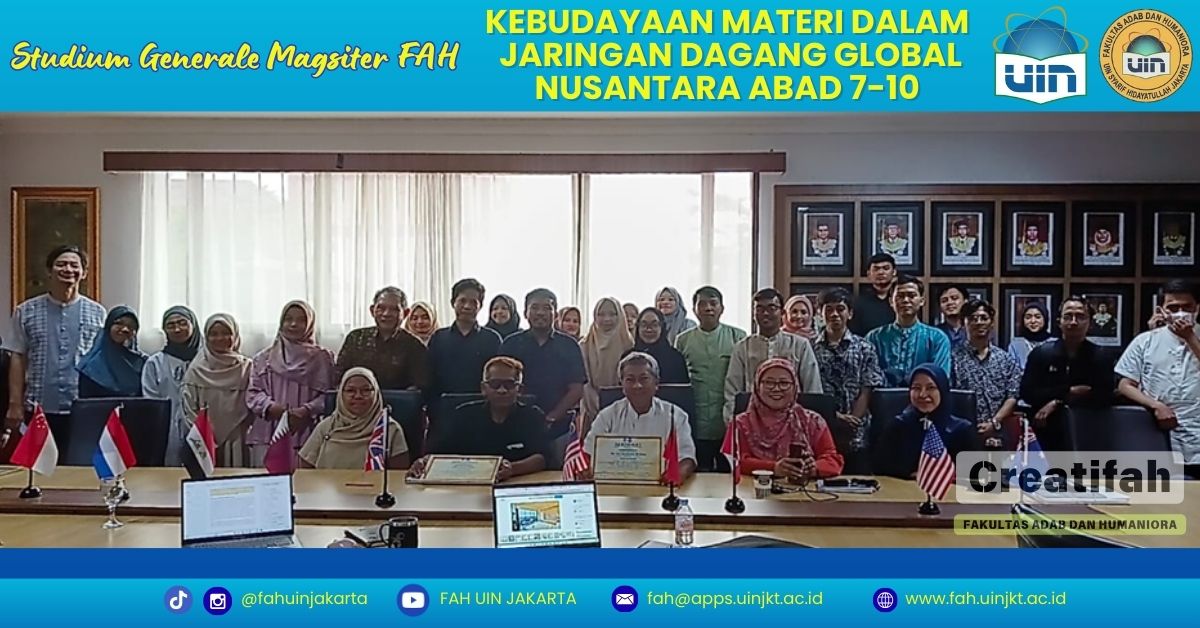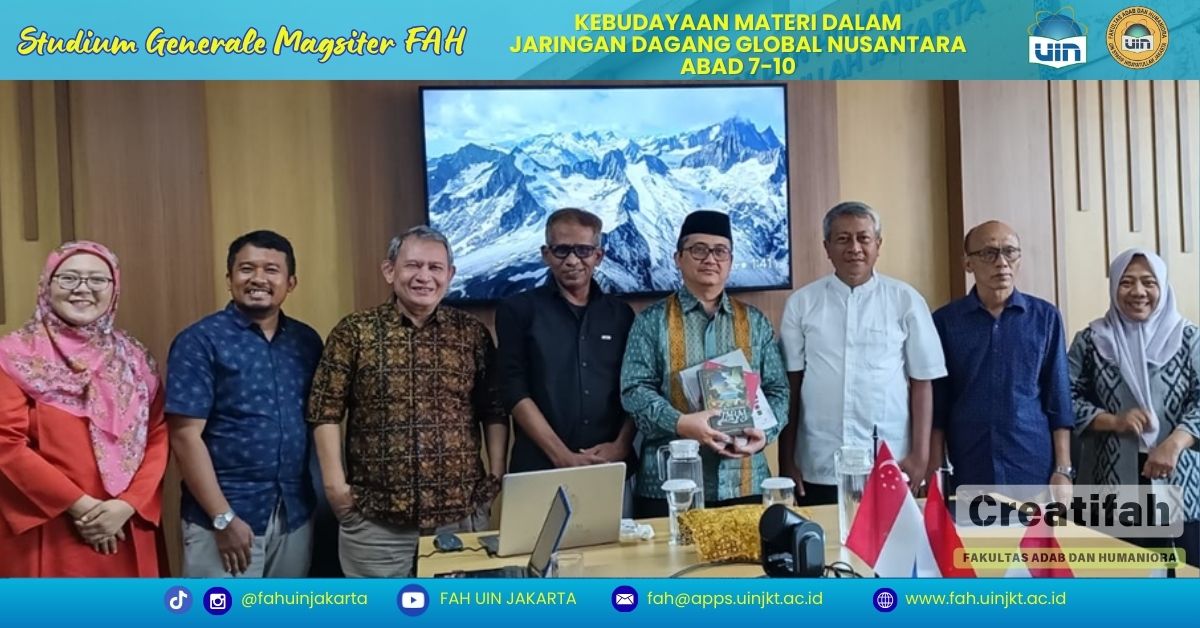FAH Holds Studium Generale: Peeling Material Evidence of the Archipelago Global Trade Network Since the 7th Century
UIN Jakarta, FAH News Online - 26 September 2025 - The Faculty of Adab and Humanities (FAH) UIN Syarif Hidayatullah Jakarta has held a Studium Generale which dissects the role of material culture in the archipelago's global trade network, especially in the period 7th to 10th centuries AD. This academic activity aims to expand graduate students' perspectives on material cultural resources (material culture). This event took place in front of dozens of master's students from MSKI, MBSA, and S3 SPI, who showed the audience's interest in Islamic and maritime archaeological studies.
The event opened with an official welcome by the Dean of FAH, Dr. Ade Abdul Hak, S.Ag., SS, M.Hum., CIQnR., who emphasizes the importance of interdisciplinary studies in humanities studies and research publications on Islam in the archipelago. Also present at this activity was the Chair of the MSKI Study Program, Prof. Dr. Jajat Burhanudin, MA., Ph.D., and Head of the MBSA Study Program, Dr. M. Adib Misbahul Islam, M. Hum., which emphasizes academic support for research involving field data and interdisciplinary collaboration. The discussion session was hosted by Faizal Arifin, SPI lecturer, who acted as moderator.
This forum presents two main resource persons who specialize in maritime archaeology. The first resource person was Dr. Ery Soedewo, SS, M.Hum., Associate Researcher from the Center for Sustainable Maritime, Environmental and Cultural Archaeology Research, National Research and Innovation Agency (BRIN). Dr. Ery explained the results of his research through material entitled "Global Commercial Network: Reflections on the Findings of Artifacts & Ecofacts at Archaeological Sites of the Archipelago," which displays evidence of Persian ceramics, Islamic beads from Mesopotamia, to local ecophacts such as frankincense and candlenuts from the Bongal Site. These findings indicate that there are trade relations between the archipelago and the global world via maritime.
The second resource person, Abu Bakar Said, Founder of the Sultanate Institute, continued the discussion with the material "Material Culture in the Nusantara Global Trade Network for the 1st-4th Century AH / 7-10 AD." He shows how the revitalization of shipping infrastructure, such as the Qulzum Canal, as well as the discovery of artifacts at Bongal— including the Umayyad Dirham Coin (700 AD) and the Kohl Stick— cosmetic device materially connected the archipelago directly to ancient Islamic trade centers in the Mediterranean and Middle East. This strengthens the argument that the archipelago functioned as a strategic partner in the global economic system in the 7th century AD.
The discussion session was interactive, where participants, especially from FAH lecturers, Doctoral and Master's Program students, asked critical questions regarding the implications of artifact findings for the narrative of early Islamic history in Indonesia and global maritime history. This discussion emphasizes the urgency of Islamic archaeological findings in further historical and humanities studies.
This Studium Generale emphasizes the role of material culture as a primary source that needs to be studied and used by academics. This activity is an important momentum for FAH UIN Jakarta to encourage postgraduate students, especially in the MSKI, MBSA and SPI Doctoral Study Programs, to adopt an interdisciplinary approach in their research, using artifactual evidence to enrich and provide new perspectives on the History of Islamic Civilization in the Archipelago. Apart from academic studies, Dr. Ery and Abu Bakar Said also offer several collaborative programs or schemes to students related to Islamic studies in the West Sumatra or archipelago region, through the National Research and Innovation Agency (BRIN) and the Sultanate Institute.
By: Faizal Arifin
Documentation:


